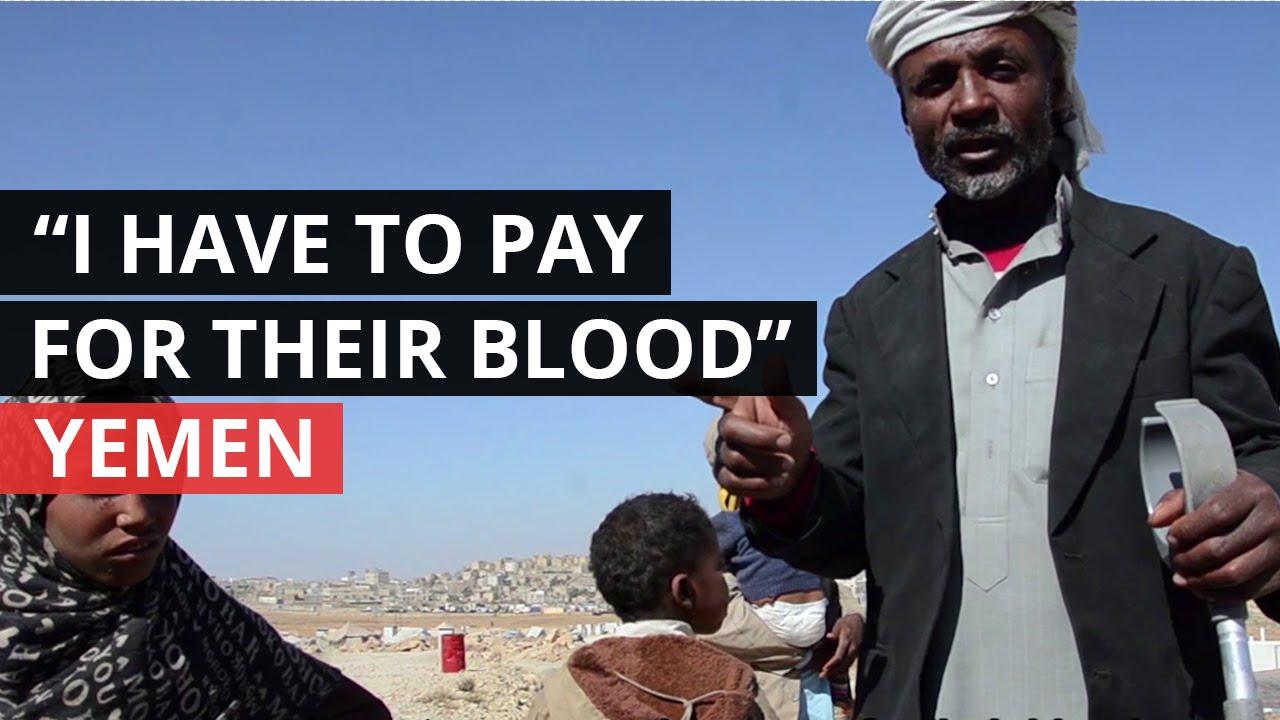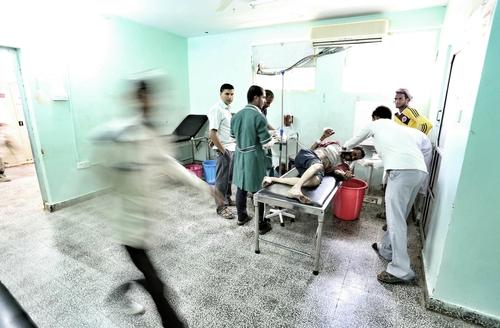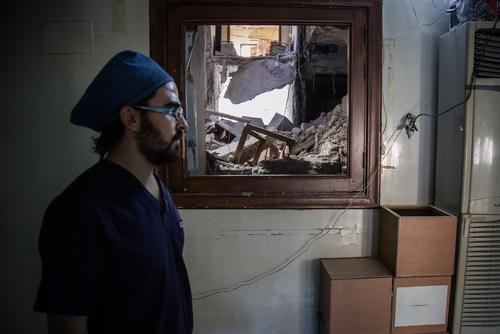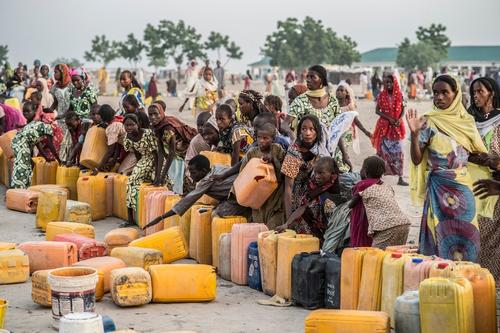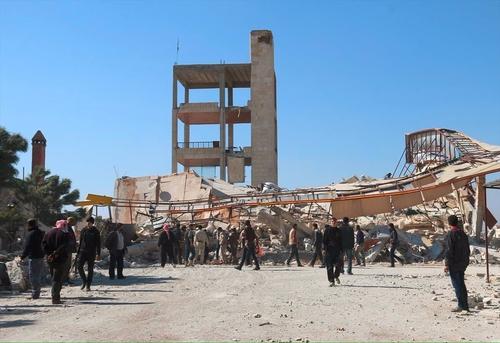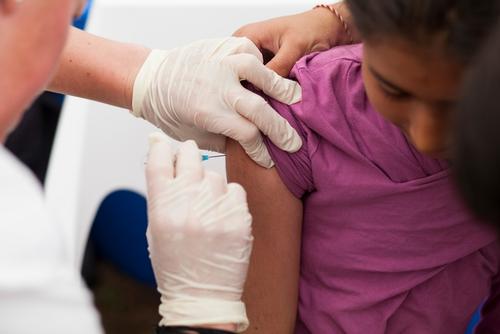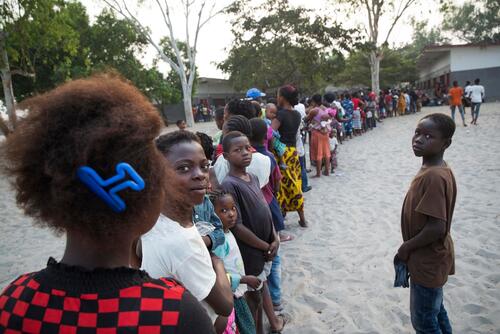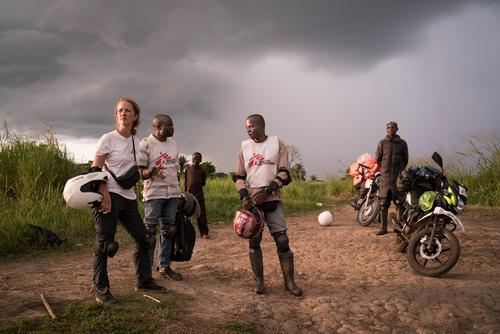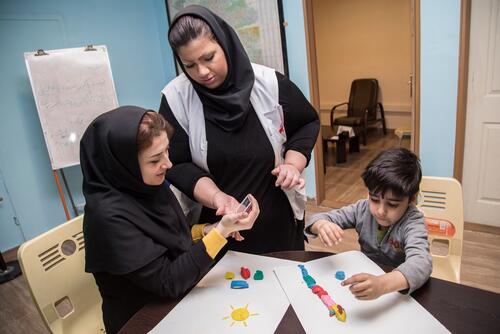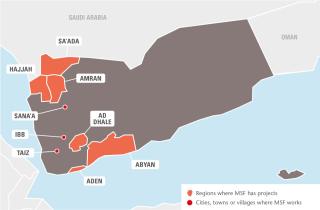
435,500
435,5
41,000
41,
16,400
16,4

15,800
15,8
12,500
12,5
1,100
1,1
Hundreds of health facilities across the country have stopped functioning due to airstrikes and shelling, and a lack of supplies, funding and staff. The rising cost of living has made it extremely hard for families to meet basic needs. Throughout 2016, medical services were in a critical state across the country. MSF scaled up its activities to address the lack of healthcare and to assist the increasing number of war victims. By the end of the year, MSF teams were directly providing healthcare to patients in 12 hospitals and supporting at least 18 other health facilities. In 2016, more than 32,900 patients in facilities operated or supported by MSF received treatment for intentional physical violence, including war wounds. Of those patients, 15,800 were treated by MSF teams. With nearly 1,600 staff, including 82 international staff, MSF’s programme in Yemen is one of its largest worldwide in terms of personnel.
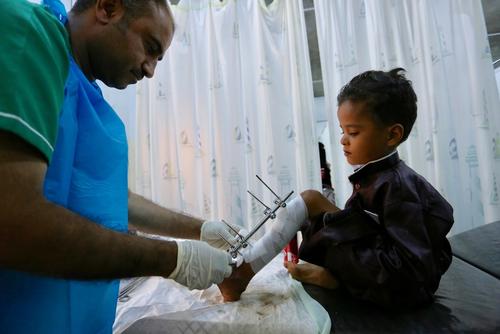
Attacks on MSF-supported facilities
Between October 2015 and August 2016, MSF tragically, and unacceptably, lost 26 colleagues and patients in four separate bombings of health facilities it runs or supports. The airstrike on Abs hospital on 15 August 2016 killed 19 people, including an MSF staff member, and wounded 24. MSF withdrew its staff from six hospitals in the north of Yemen in the wake of the attack, while continuing to support the facilities. MSF resumed activities in the north of Yemen in November 2016.
Sa’ada
Our teams worked in the maternity, surgical and inpatient departments, and provided mental health care and physiotherapy in Al Jomhouri hospital. MSF provided assistance in the emergency room and in the maternity department of Shiara hospital, which was hit by a missile in January 2016. Haydan health centre was hit by an airstrike in October 2015 and MSF continued to work there until August 2016.
Hajjah
MSF was providing lifesaving healthcare in Al-Jumhouri hospital in Hajjah town and running the emergency room, inpatient department, paediatric ward and maternity departments at Abs hospital, as well as doing surgeries in both places. MSF withdrew its teams temporarily from those two hospitals following the airstrike on Abs hospital on 15 August but resumed work in Hajjah governorate in November. MSF opened an inpatient therapeutic feeding centre in Abs in early December in the hospital and referred other complicated cases to the specialised hospitals in Hajjah, Sana’a and Hudaydah. MSF also carried out medical outreach activities for people living in and around the camps for the internally displaced in Abs district, providing medical care and mental health services. At the end of the year, MSF also expanded its support to the maternity unit of the Hajjah hospital.
Amran
Many people have fled conflict in other parts of the country to settle in the relatively calm Amran governorate. MSF supports healthcare provision and runs referral systems in Al Salam hospital, and four health centres. It also donates medical and logistical equipment. In May, MSF conducted a scabies treatment campaign, providing medical assistance and treating clothes with boiling water to rid them of the parasite, and distributing soap and other items to improve hygiene in camps for internally displaced people in Khamir and Huth.
Sana’a
MSF supports the emergency room and operating theatre in Al-Kuwait hospital in Sana’a and donates emergency supplies to Al Jomhouri, Al-Thawra and Al-Sabeen hospitals. Maternal and child healthcare is an important focus of MSF’s work at Al Sabeen hospital.
HIV
MSF’s support to the Ministry of Health’s HIV programme continued. Despite the violence, 97 per cent of the programme’s 2,529 patients received their lifesaving antiretroviral treatment. Treatment has been ensured for patients not only in Sana’a but for the programmes in Taiz, Mukalla, Aden and Hudaydah.
Dialysis
The war has severely affected supplies to dialysis treatment centres. Since October 2015, MSF has supported centres in Sana’a, Sa’ada and Hajja. In August, this support was extended to centres in Taiz and Mahweet.
Ibb
Ibb governorate is the most densely populated region of Yemen. MSF supports the emergency department of Al-Thawra Hospital, Ibb governorate’s largest central hospital, where it aims to improve emergency healthcare and mass casualty management. Teams also work in the General Rural Hospital of Thi As-Sufal district,on the southern border with Taiz governorate, close to one of the country’s violent frontlines. This hospital serves around 500,000 people. MSF rehabilitated the hospital and performed lifesaving surgeries on the most severe medical cases.
Taiz
In 2016, the situation was critical in Taiz. Most hospitals closed amid some of the heaviest fighting in the country. Movement in and out of the city centre remained restricted and dangerous for civilians and humanitarian workers. MSF provided lifesaving medical activities on both sides of the frontline, mainly treating patients with injuries resulting from airstrikes, blasts, shellings, gunshots and landmines. In addition, teams continued to run a mother and child hospital and a trauma centre for war-wounded and trauma cases, and regularly supported four hospitals offering maternity, paediatric, surgical and emergency services in the city centre.
Ad Dhale
Some areas in Ad Dhale saw intense levels of fighting in August, with armed clashes, sniper fire, shelling and rocket attacks. MSF works in Al-Nasr hospital providing a wide range of activities. MSF is also working in Al Salam hospital and Thee Ijlal health centre in Qataba. Towards the end of 2016, MSF started supporting Damt health centre in the governorate.
Aden
MSF continued to run its emergency surgical hospital providing lifesaving healthcare to thousands of people. In 2016 alone, 5,790 patients were admitted in the emergency room. The hospital receives patients from many southern governorates including Taiz, Lahj, Abyan, Ad Dhale and Shabwa. At Aden central prison, MSF medical staff provided primary healthcare services to inmates, conducting an average of 50 weekly consultations.
MSF also supported Al-Razi hospital in Abyan with surgical support and regular donations of medical supplies.
